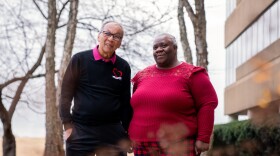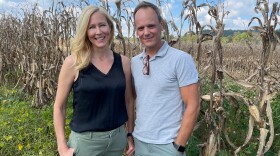Blake Farmer
-
More and more hospitals are contracting with private companies to run their emergency departments. To save money, many are increasingly relying on nurses and physician assistants instead of doctors.
-
Clinics that care for long COVID patients are wrestling with how to handle a condition that is still poorly understood and has no widely accepted treatments.
-
When rural hospitals go out of business, they're frequently gone for good. But now, some comebacks are a welcome sign for communities that have been without easy access to health care.
-
Reproductive rights proponents worry about the risk of counseling those who seek medication abortions, though they've published online support techniques and guides for safe use of the drugs.
-
Black patients and their families are less likely to sign up for end-of-life comfort care. To reach them, investors are starting hospice agencies run by people who look like the patients they serve.
-
With few options for health care in their rural community, a Tennessee couple's experience with one outrageous bill could have led to a deadly delay when they needed help the most.
-
Republican legislators in Tennessee pushed to limit marketing COVID-19 vaccines to youth, and to restrict access. Some doctors worry it will have a chilling effect on vaccinations.
-
A majority of white, rural conservatives in Tennessee are open to getting the vaccine at some point, but at least 45% won't consider it. Rates in Alabama, Georgia and Mississippi are also lagging.
-
Hospitalizations are down 62% for childhood respiratory illnesses, a study shows. Masking and physical distancing are keeping a variety of viruses in check, but will these behaviors last?
-
Once Pfizer's vaccine gets delivered, it's up to individual states to actually get people vaccinated. States have different priorities and plans.
-
As states move on from social distancing, they need plenty of coronavirus testing to prevent future outbreaks. But many communities face testing bottlenecks. Tennessee has a solution.
-
Only a few states have enough tests to ensure safe reopening. Most of those have a small population or have taken up unique approaches. The state of Tennessee has decided to pay for every single test.






